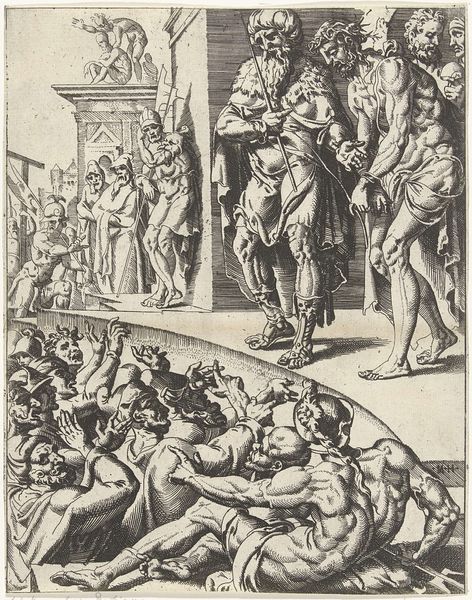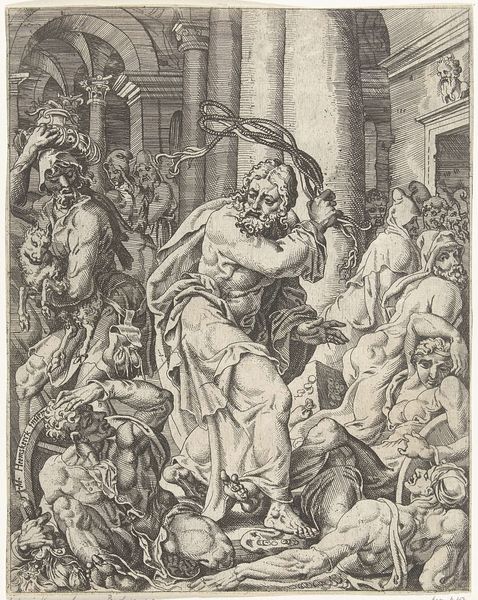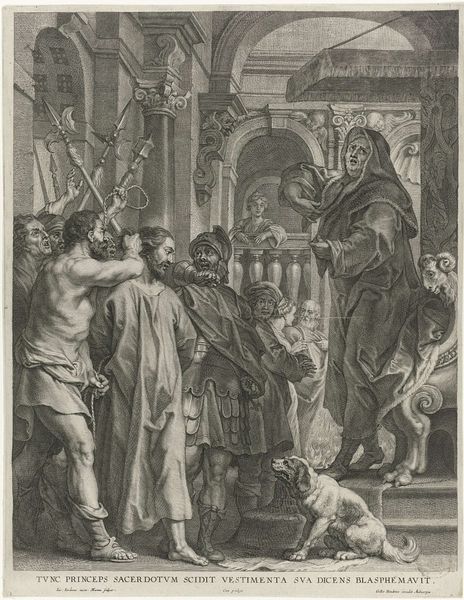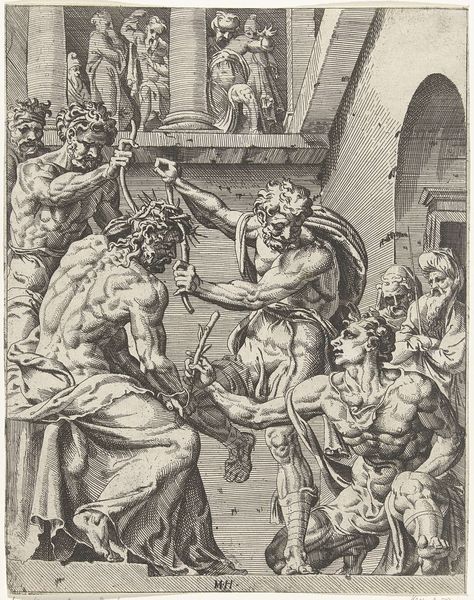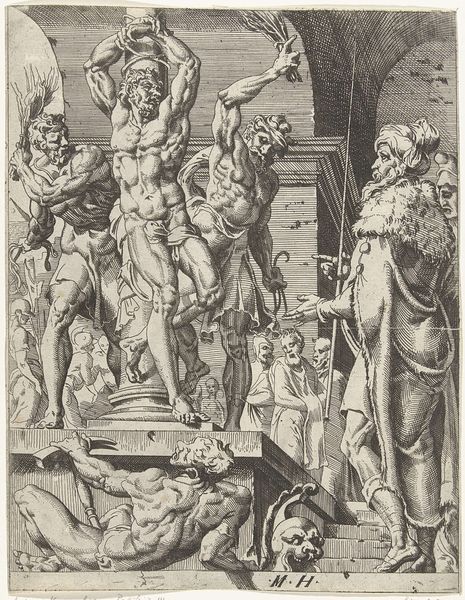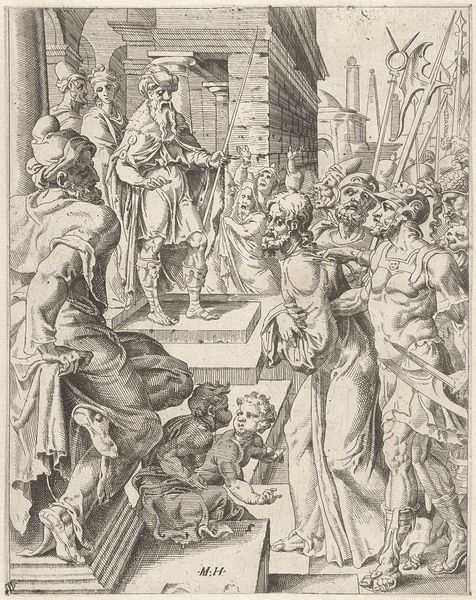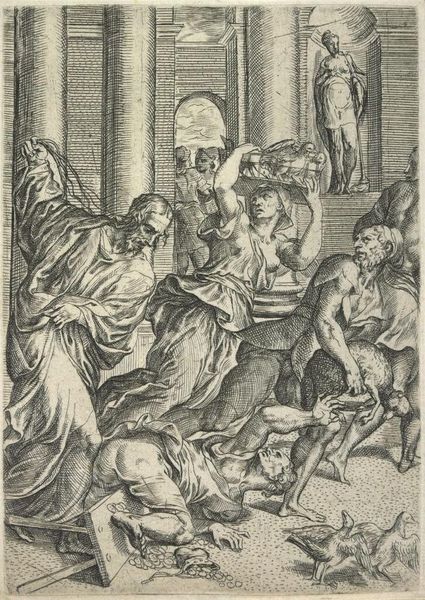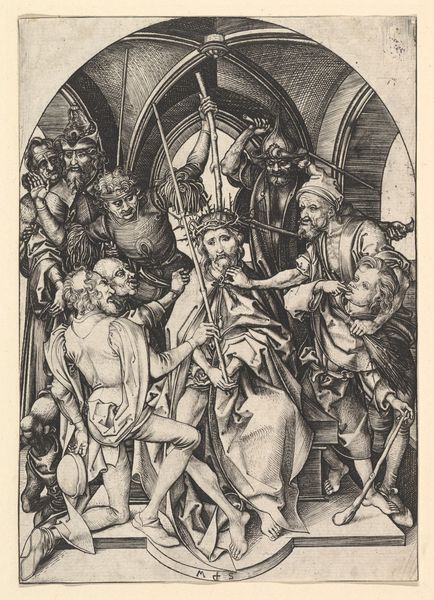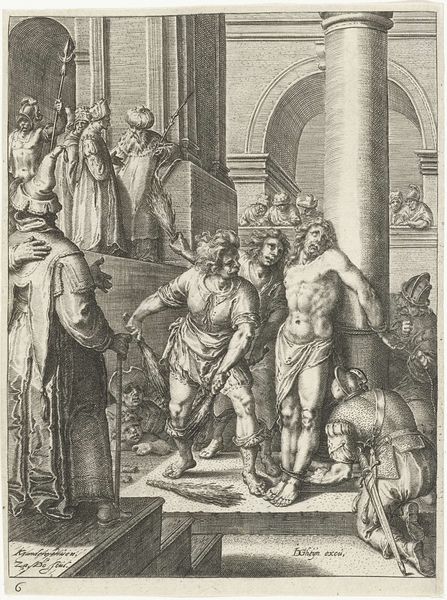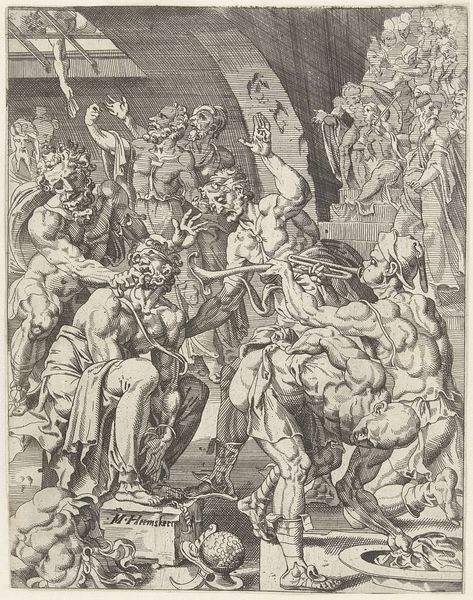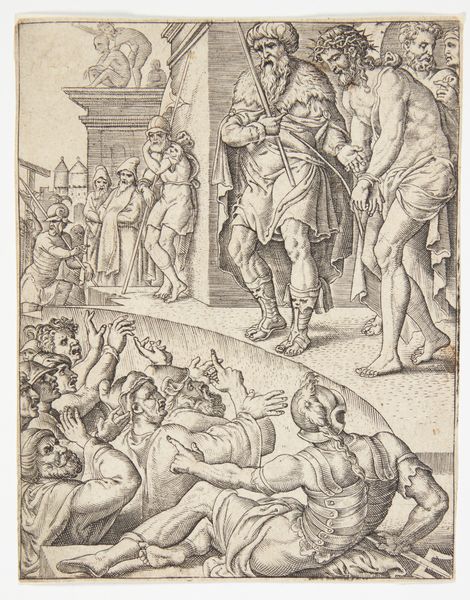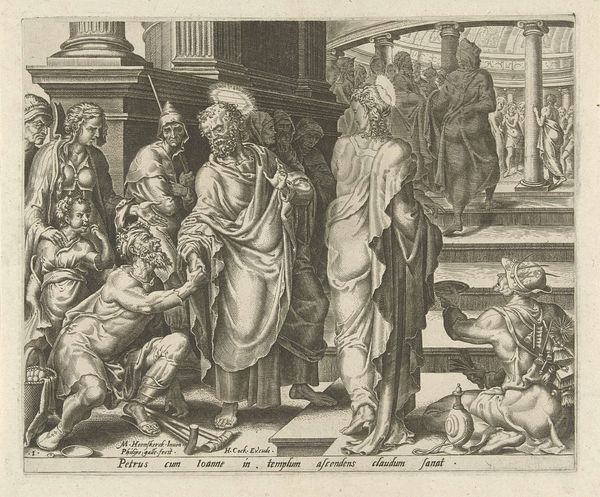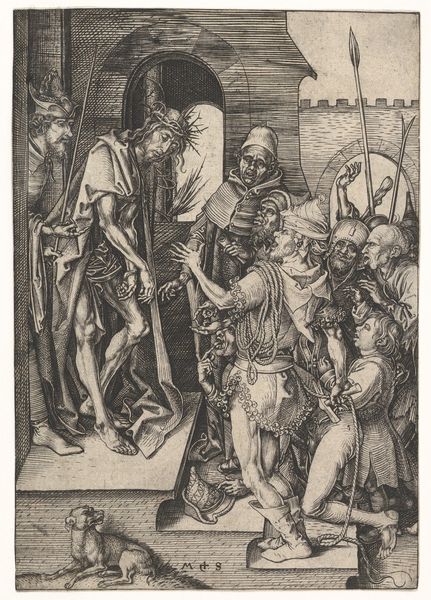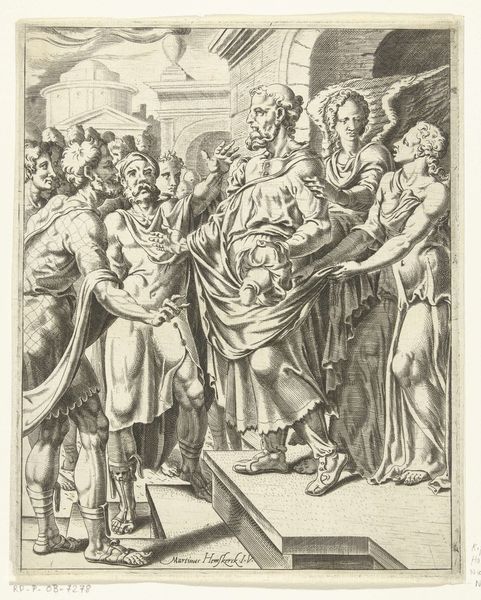
print, engraving
#
ink drawing
#
narrative-art
#
pen drawing
# print
#
figuration
#
history-painting
#
northern-renaissance
#
engraving
Dimensions: width 194 mm, height 249 mm
Copyright: Rijks Museum: Open Domain
This print, Christus voor de hogepriester Annas, was made by Dirck Volckertsz Coornhert, a Dutch artist active in the 16th century. The medium is engraving, a process where the image is incised into a metal plate, which is then inked and printed. Look closely, and you’ll see a network of fine lines creating the scene. The material qualities of the metal plate itself influence the image: the hardness of the metal allows for sharp, precise lines. The skill involved in engraving is considerable, requiring years of practice. Each line must be carefully planned and executed to create the desired tonal effect. Engraving was a crucial method for disseminating images during the Renaissance. Prints like this one played a key role in spreading artistic ideas across Europe. The act of reproduction also speaks to broader issues of labor and the market. Coornhert was not only an artist, but also an entrepreneur, producing images for a growing audience. Considering the material and the making helps us appreciate not only the artist’s skill, but also the social and economic context in which this image was created. It challenges our traditional notions of art, reminding us that even the most seemingly ‘fine’ art is deeply entwined with craft and commerce.
Comments
No comments
Be the first to comment and join the conversation on the ultimate creative platform.
